research and development
research, innovation and teaching are the main principles of spacelab.
Technological advances allow on-board systems to becoming more and more autonomous, not only for the navigation and attitude control activities of a spacecraft, but also in the pre-processing of data to be transmitted to ground stations. In the big data era, on-board pre-processing is a de facto need in modern satellite platforms. The availability of low power high resolution sensors for remote sensing, high data rate instruments, a variety of cameras generating a huge amount of pixels to be compressed, among other data intensive operations, result in the need of multi-processed architectures, similar to the ones used in ground level applications.
However, the reliability and energy requirements in the space environment are stricter, placing the research on this type of parallel processing architecture at the knowledge frontier. Reliability improvement and system processing acceleration features are often achieved through redundancy. The implementation of traditional redundancy strategies, usually results in an increase in the energy consumption. In space applications, where energy is a scarce resource, both reliability and processing power improvements must be carefully designed and this compromise is a major research challenge to be conducted at the SpaceLab. The multidisciplinary nature of the field is an inspiration for unfolding new research topics, and to investigate new technologies, which could be useful also in other application fields as, for instance, autonomous robots guidance, self-driving cars, among others. In the group, there are on-going theses related to space systems in general, including on-board computer architectures of satellites (software and hardware), mechanical and thermal aspects of spacecrafts.

main research sectors and areas
Computing
- Neural network, machine learning, AI;
- Real Time Operating Systems (RTOS);
- Software engineering;
- Unconventional arithmetic;
Comunication
- DVB-S2; 5G; SDR; SDN;
- Global Navigation Satellite System (GNSS);
- Image processing;
Engineering
- Assembly, integration and testing (AIT);
- PCB design;
- Radiation effects;
- Reliability improvement;
- Verification & validation (V&V);
Ground Station
- Ground segment – Space-Earth network of ground stations and satellites;
- RF regulations;
Mechanics
- Interconnection infra-structures;
- Mechanical and Thermal designs;
Processing
- Configurable computing (FPGA/HDL);
- Multi-core/many-core systems;
- Satellite-on-a-chip;
- Soft-processors;
Embedded Systems
- Attitude Determination and Control Systems (ADCS);
- Electrical Power Systems (EPS);
- On-Board Data Handling (OBDH);
- Star tracker;
- Telemetry, Tracking and Command Systems (TT&C);
The Embedded Systems Group (GSE) has been created at PUCRS in 2003. In 2010 the group started its activities at UFSC.
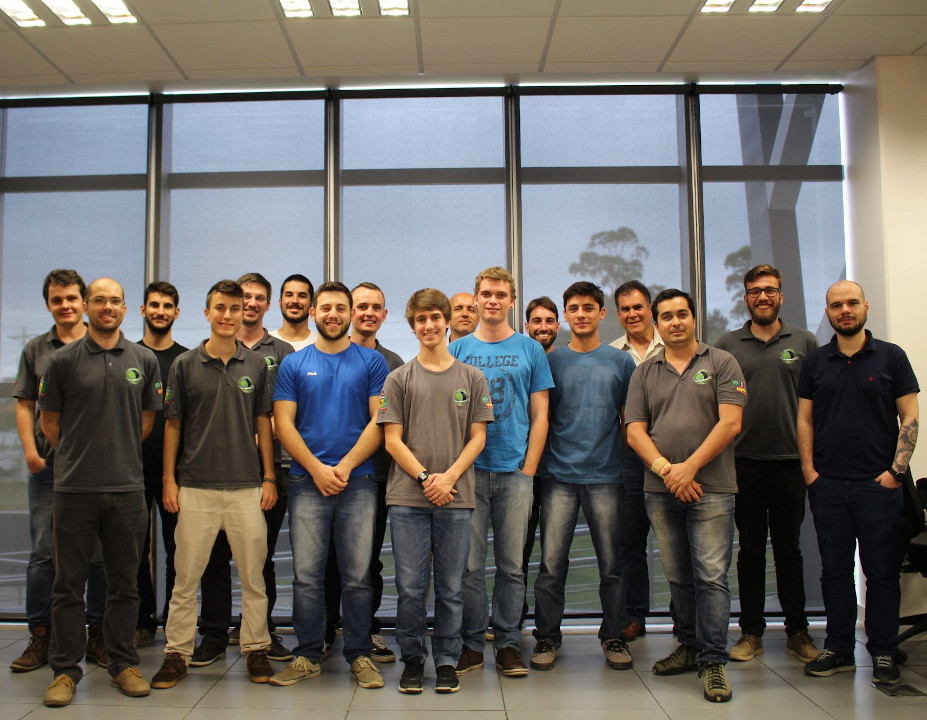
The heat pipe and thermosyphon research and development began in the 1990’s, starting from the need of the Brazilian Space Agency (Agência Espacial Brasileira – AEB) and of the national space industry to develop a thermal control system for the Brazilian satellites. The laboratory infrastructure, acquired throughout the years, allowed the research to shift to industrial applications, with several partnerships and contracts created. Currently, the heat pipe and thermosyphon research can be divided in two main areas…

Under construction!
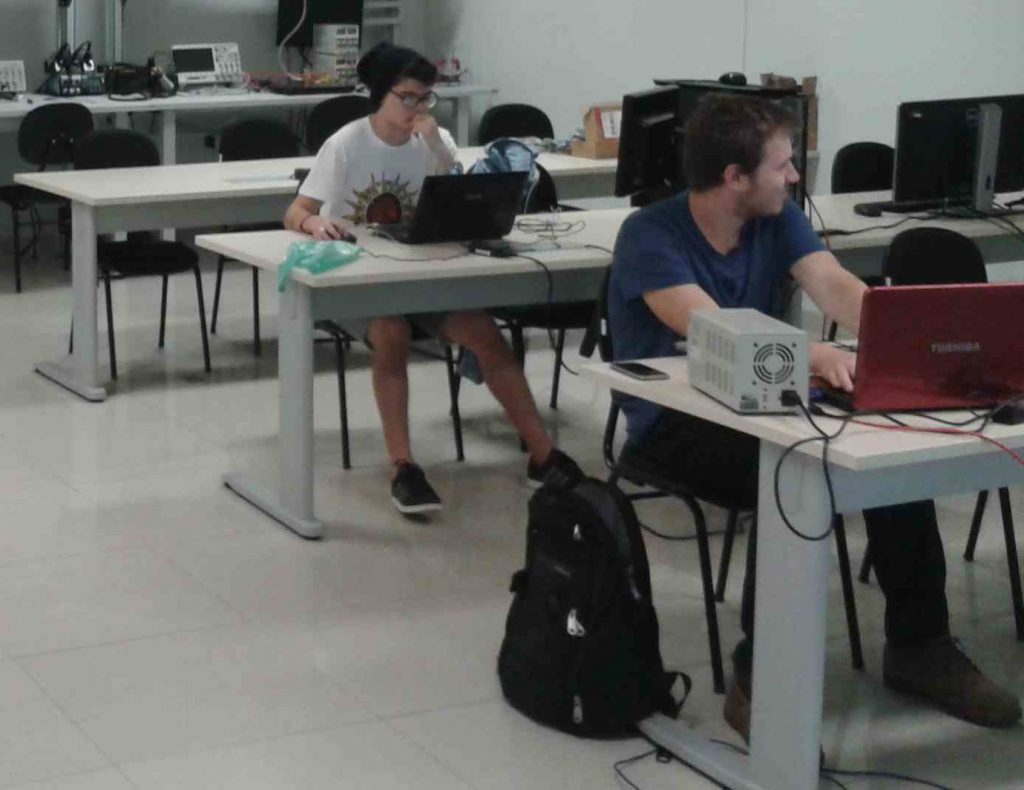
Founded in the first half of 2018, FloripaSat emerged to participate in the 1st CubeDesign competition. The team consists of undergraduate and graduate students from the Federal University of Santa Catarina.
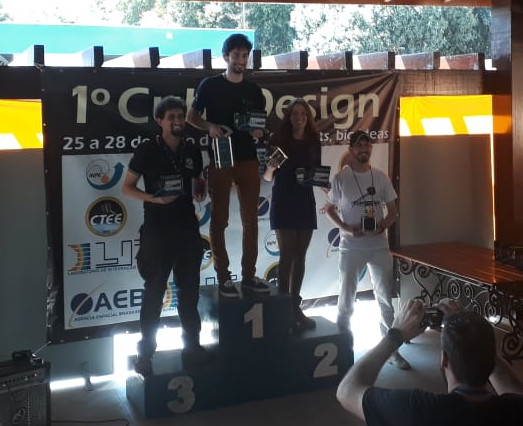
Founded in the second half of 2018, Apex Rocketry emerged from the initiative of a student group to develop and build mini-rockets. Subdivided into three areas – Electronics, Aerostructures and Propulsion – the team consists of undergraduate students from the Federal University of Santa Catarina.
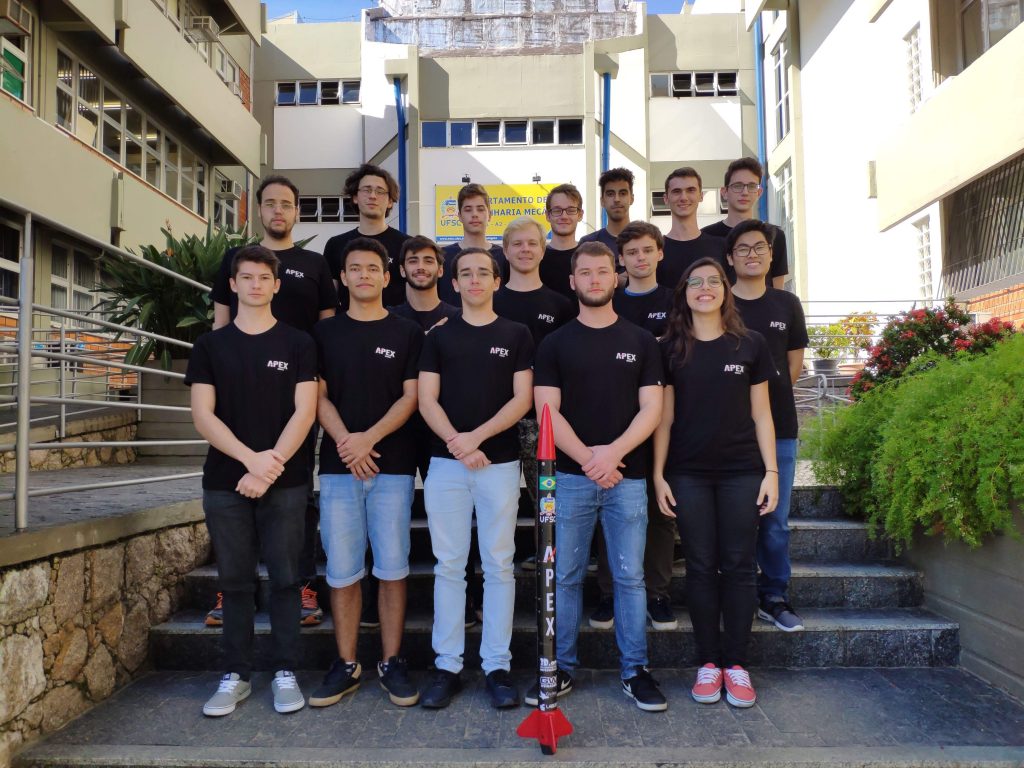
Founded in the second half of 2018, Apex Rocketry emerged from the initiative of a student group to develop and build mini-rockets. Subdivided into three areas – Electronics, Aerostructures and Propulsion – the team consists of undergraduate students from the Federal University of Santa Catarina.

head researcher
EDUARDO AUGUSTO BEZERRA, PHD

Dr. Eduardo Bezerra is a Researcher and Lecturer of Computer Engineering at Universidade Federal de Santa Catarina (UFSC), where he is with the Department of Electrical Engineering since 2010. He was formerly with the Faculty of Informatics, Catholic University (PUCRS), Brazil, from 1996 to 2010. He received his Ph.D. in Computer Engineering from the University of Sussex (Space Science Centre), England, UK, in 2002. He is the author and co-author of papers published covering a broad range of scientific topics within the disciplines of Computer Engineering. His research interests are in the areas of embedded systems, space applications, computer architecture, reconfigurable systems (FPGAs), software and hardware testing, fault tolerance and microprocessor applications. At PUCRS, he was the head of the Embedded Systems Group (GSE) where he led and managed several research projects funded by Brazilian Government Agencies and also by the industry. In 2004 he set up a company named Innalogics at PUCRS Technological Park, TecnoPUC. Innalogics is a spin-off of GSE aiming the improvement of industry-university collaboration in the field of embedded systems design.
- Satellites and space applications
- Embedded systems
- Real time systems
- Software engineering
- Radiation effects in space systems
- Reconfigurable computing (FPGA, HDL)
- Protocols for space communications
- Test and fault tolerance
- Thermal control of spacecrafts
- Heat exchange and heat pipes
Master and PhD candidates are welcome to develop their research work in the laboratory’s research topics, and also in new topics to be proposed. Undergraduate students can develop their final year projects, and also join the laboratory to take part in the on-going space missions.
E-mail: eduardo.bezerra@spacelab.ufsc.br
Lattes: http://lattes.cnpq.br/9385929088657818
Linkedin: https://www.linkedin.com/in/eduardoaugustobezerra/
Prof. Bezerra On-going supervisions
Duration
start: [01-Mar-2020]
end: [28-Feb-2021]
Program
CNPq Scholarship
Department
PPGEEL/UFSC
Duration
start: [7-Apr-2015]
qualify: [6-Sept-2017]
end: [7-Apr-2019] [7-Apr-2020].
Program
Department
Duration
start: [7-Apr-2015]
qualify: [6-Sept-2017]
end: [7-Apr-2019] [7-Apr-2020]
Program
Department
Duration
start: [01-Jun-2019]
qualify: [13-Feb-2020]
end: [01-Jun-2023]
Program
Department
Duration
start: [31-Mar-2017]
qualify: [31-Mar-2019]
end: [31-Mar-2021]
Program
Department
Duration
start: [15-Mar-2019]
qualify: [15-Mar-2021]
end: [15-Mar-2023]
Program
Department
Duration
start: [01-Jun-2019]
qualify: [01-Jun-2021]
end: [01-Jun-2023]
Program
Department
Duration
start: [01-Aug-2018]
end: [01-Aug-2020]
Program
Department
Duration
start: [01-Aug-2018]
end: [01-Aug-2020]
Program
Department
Duration
start: [01-Mar-2019]
end: [01-Mar-2021]
Program
Department
Duration
start: [01-Mar-2019]
end: [01-Mar-2021]
Program
Department
Duration
start: [01-Aug-2018]
end: [01-Aug-2020]
Program
Department
Duration
start: [01-Mar-2019]
end: [01-Mar-2021]
Program
Department
Duration
start: [01-Jul-2019]
end: [01-Jul-2020]
Program
Department
Duration
start: [08-Dec-2019]
end: [08-Mar-2020]
Program
Department
Prof. Bezerra past supervisions
- Laio Oriel Seman, “Research in CCSDS nanosatellite communications systems”, 01/Mar/2018-07/Apr/2019, CNPq Scholarship, PPGEEL/UFSC.
- Leonardo Kessler Slongo, Post-doc, “Research in nanosatellite electrical power systems”, 01/Mar/2018-07/Apr/2019, CNPq Scholarship, PPGEEL/UFSC.
- Juan Raul Rodriguez Suarez, “Demodulation and classification systems in FPGAs for digital modulations”, 30/09/2014-30/03/2015, CAPES Scholarship, PPGEEL/UFSC.
- Victor Hugo Schulz, PhD degree, “Verification Platform for Improving the Design and Test of Star Trackers”, 11/03/2020, PPGEEL/UFSC.
- Paulo Ricardo Cechelero Villa, PhD degree, “Reliability enhanced microprocessor architecture for the on-board computer of future satellites”, 27/04/2018, PPGEEL/UFSC.
- Roberto de Matos, PhD degree, “Efficient RNS to Binary reverse converters for wide dynamic range applications”(Title in Portuguese: “Conversores reversos RNS-binário eficientes para aplicações com ampla faixa dinâmica “), 22/03/2018, PPGEEL/UFSC.
- Leonardo Kessler Slongo, PhD degree, “Nanosatellite electrical power systems hardware architectures: an analysis on energy harvesting maximization through scheduling algorithm”, 22/12/2017, PPGEEL/UFSC.
- Laio Oriel Seman, “Modeling active learning in electrical engineering through partial least squares path” (Title in Portuguese: “Mínimos quadrados parciais na modelagem da aprendizagem ativa na Engenharia Elétrica”), 11/10/2017, PPGEEL/UFSC.
- Frederico Ferlini, “Methodology to Accelerate Diagnostic Coverage Assessment: MADC”, 2016, CNPq Scholarship, PPGEEL/UFSC.
- Victor Manuel Goncalves Martins, “SRAM FPGA instrumentation for permanent fault recovery and prevention targeting space applications.” (Title in Portuguese: “Instrumentação de FPGAs SRAM para Recuperação e Prevenção de Faltas Permanentes Visando Utilização em Aplicações Espaciais”), 2016, CNPq Scholarship, PPGEEL/UFSC.
- Juliano D’Ornelas Benfica, “Testing and Qualification Platform for Reconfigurable Devices and Systems-on-Chip, Exposed to the Combined Effects of Electromagnetic Interference and Ionizing Radiation”, (Title in Portuguese: “Plataforma para Testes e Qualificação de Dispositivos Reconfiguráveis e Sistemas em Chip, Submetidos aos Efeitos Combinados da Interferência Eletromagnética e da Radiação Ionizante”), 2015, PPGEEL/UFSC.
- Lucas Matana Luza, “A Radiation-Hardened Communication Module for Small Satellites”. 18 March 2019, PPGEEL/UFSC.
- Cezar Antônio Rigo, “Design of FPGA boards for small satellites targeting the space radiation environment”, (Title in Portuguese: ”Projeto de Placas de Circuito Impresso com FPGAs para uso em ambiente espacial”). 11 March 2019, PPGEEL/UFSC.
- Gabriel Mariano Marcelino, “Star tracker centroid extraction algorithm targeting FPGAs to be used in Cubesats”, (Title in Portuguese: “Desenvolvimento e Implementação de um Algoritmo para Extração de Centroides em Star Trackers para CubeSats Utilizando FPGAs”. 18 Dec 2018, PPGEEL/UFSC.
- Elder Dominghini Tramontin, “Remote update of on-board computer firmware of satellites: the FloripaSat-I case study”, (Title in Portuguese: “Estratégia para atualização remota de sistemas computacionais embarcados em satélites: um estudo de caso com o nanossatélite FloripaSat-I”. 26 Nov 2018, PPGEEL/UFSC.
- Anselmo Luis da Silva Junior, “Analysis and modelling of the classical CMOS Schmitt Trigger in strong inversion”, (Title in Portuguese: “Análise e modelagem do Schmitt Trigger CMOS convencional em inversão forte”). 6 Sept 2018, PPGEEL/UFSC.
- Rodrigo Travessini, “Low Overhead Soft Error Reliabiliy Improvement for Soft Processors”. 07/04/2018, CNPq Scholarship, PPGEEL/UFSC.
- João Gabriel Reis, “A framework for predictable hardware/software component reconfiguration”, 2016, CAPES Scholarship, PPGEEL/UFSC.
- Bruno Carvalho Farias, “FPGA Based Program Clock Reference Correction”, (Title in Portuguese: “Correção de referência de relógio para fluxo de transporte MPEG-2 em FPGA”), 2014, PPGEEL/UFSC.
- Tomas Grimm, “A Reed-Solomon encoder/decoder implemented through a hardware description language”, (Title in Portuguese: “Desenvolvimento em Linguagem de Descrição de Hardware de Codificador e Decodificador Reed-Solomon”), 2014, CNPq Scholarship, co-supervisor, PPGEEL/UFSC.
- Felipe Augusto da Silva, “Conception and validation of a robust soft processor based architecture for on-board computers to b used in artificial satellites”, (Title in Portuguese: “Concepção e validação de arquitetura robusta baseada em soft processors para uso em computadores de bordo de satélites artificiais”), 2013, CNPq Scholarship, PPGEEL/UFSC.
- Cládio José Martins Júnior, “Riversense: Wireless Sensor Networks in Early Flood Detection”, (Title in Portuguese: “Riversense: Um sistema para monitoramento de rios através de redes de sensores sem fio”), 2013, CNPq Scholarship, PPGEEL/UFSC.
- Paulo Ricardo Cechelero Villa, “A development platform based on reconfigurable hardware technology for intelligent power converters”, (Title in Portuguese: “Plataforma de desenvolvimento baseada em tecnologia reconfigurável para conversores de energia inteligentes”), 2013, CNPq Scholarship, PPGEEL/UFSC.
- Leonardo Kessler Slongo, “Improving task-scheduling in solar energy harvesting wireless sensor network systems”, (Title in Portuguese: “Circuitos coletores de energia solar para sistemas embarcados de baixo consumo”), 2013, CNPq Scholarship, PPGEEL/UFSC.
- Frederico Ferlini, “PLAESER – Soft errors emulation platform aiming experimental analysis of fault tolerance techniques: a rapid prototyping with FPGAS”, (Title in Portuguese: “PLAESER – Plataforma de emulação de SOFT ERRORS visando a análise experimental de técnicas de tolerância a falhas: uma prototipação rápida utilizando FPGAS”), 2012, CNPq Scholarship, PPGEEL/UFSC.
- Luciano Rigelo Azevedo, “Reliability aspects in the implementation of a telecommand and telemetry module for satellites”, (Title in Portuguese: “Aspectos de Confiabilidade na Implementação da Unidade de Telecomando e Telemetria para Plataformas Orbitais”), 2010, CNPq Scholarship,PPGCC/PUCRS.
- Marcio Martins Farias, “Protocolo de roteamento para redes wireless mesh”, 2008, PPGCC/PUCRS.
- Alexandre Gaddo, “Avaliacao de Transferencia de Informacoes de Rastreamento Veicular sobre Redes GPRS”, 2008, PPGCC/PUCRS.
- Daniel da Silva Cotrim, “Arquitetura de Indexação Aplicada a Servidores PACS para Processamento de Imagens”, 2007, Hewlett Packard Scholarship, PPGCC/PUCRS.
- Guilherme Frederico Rohde, “R-MAC: Protocolo de Acesso ao Meio para Consumo Eficiente de Energia em Redes de Sensores sem Fio”, 2007, Hewlett Packard Scholarship, PPGCC/PUCRS.
- Márcio Garcia Martins, “Modelo de Protocolo para Formacao de Redes Ad hoc Bluetooth”, 2007, Hewlett Packard Scholarship, PPGCC/PUCRS.
- Luis Vitorio Cargnini, “Protocolo de Comunicação CCSCD Visando ASIC”, 2007, CNPq Scholarship, co-supervisor, PPGEE/PUCRS.
- Gabriel Marchesan Almeida, “Codigos Corretores de Erros em Hardware para Sistemas de Telecomando e Telemetria em Aplicacoes Espaciais”, 2007, CNPq Scholarship, PPGCC/PUCRS.
- Leonardo Albernaz Amaral, “Estratégia para desenvolvimento de programas paralelos visando diminuir a intrusão causada pelo teste de software”, 2006, Hewlett Packard Scholarship, PPGCC/PUCRS.
- Daniel Ordobás Bortolás, “Diversidade Orientada à Mutação para Melhoria de Manutenção e Confiabilidade”, 2005, Hewlett Packard Scholarship, co-supervisor, PPGCC/PUCRS.
- Carlos Eduardo Cardoso Reif, “Projeto de ASIC CCSDS Tolerante a Radiação”, 2008, Monografia, Aperfeiçoamento/Especialização em Ciencia da Computacao, PPGCC/PUCRS.
- Laerte Strelow Zarnott, “Confiabilidade em redes ad-hoc”, 2006, Monografia, Aperfeiçoamento/Especialização em Ciencia da Computacao, PPGCC/PUCRS.
- Antônio Mário Weinsen Junior, Electrical Engineering degree, “Study and application of computational vision and neural networks for fault location and detection in PCBs assembly”. start: [01-Mar-2019]; end: [19-Feb-2020]. Trabalho de Conclusão de Curso. (Graduação em Engenharia Elétrica) – Universidade Federal de Santa Catarina. Orientador: Eduardo Augusto Bezerra.
- Sergio Stahelin, Electrical Engineering degree, “Design and implementation of a flight controller for a quadcopter using a development platform”. start: [01-Mar-2017]; end: [01-Mar-2018]. Trabalho de Conclusão de Curso. (Graduação em Engenharia Elétrica) – Universidade Federal de Santa Catarina. Orientador: Eduardo Augusto Bezerra.
- Pedro Steffens Rigotti. Concepção de Sistema Embarcado para o Controle de um Monitor Multiparamétrico. 2017. Trabalho de Conclusão de Curso. (Graduação em Engenharia Eletrônica) – Universidade Federal de Santa Catarina. Orientador: Eduardo Augusto Bezerra.
- Antonio Adalberto Duarte Junior. “Application development for RF control of devices.”, “Desenvolvimento de Aplicação para Controle de Dispositivos via Rádio Frequência”. 2016. Trabalho de Conclusão de Curso. (Graduação em Engenharia de Controle e Automação) – Universidade Federal de Santa Catarina. Orientador: Eduardo Augusto Bezerra.
- Andrio Renan Gonzatti Frizon. “Programming, embedded systems and IoT courses for young age learners.”, “Desenvolvimento de Cursos de Programação, Sistemas Embarcados e Internet das Coisas para Crianças e Adolescentes”. 2016. Trabalho de Conclusão de Curso. (Graduação em Engenharia de Controle e Automação) – Universidade Federal de Santa Catarina. Orientador: Eduardo Augusto Bezerra.
- Joao Filipe Silva Costa. “Embedded System for Monitoring Computing Servers.”, “Sistema Embarcado para Monitoramento de Parâmetros Físicos em Ambientes de Servidores.”, 2015. Trabalho de Conclusão de Curso. (Graduação em Engenharia Eletrônica) – Universidade Federal de Santa Catarina. Orientador: Eduardo Augusto Bezerra.
- Rodrigo Travessini. “”A Checkpoint Roll-back Recovery Strategy for the Leon3 Processor.”, “Solução de salvamento de checkpoint para utilização em técnicas de rollback/recovery em hardware no processador LEON3.”, 2015. Trabalho de Conclusão de Curso. (Graduação em Engenharia Eletrônica) – Universidade Federal de Santa Catarina. Orientador: Eduardo Augusto Bezerra.
- Luccas Meller Casagrande. “Infrastructure for the interface between the communication and processing units of INPE’s on-board computer.”, “Infraestrutura para interface entre a unidade de comunicação e a unidade de processamento de computador de bordo do INPE”. 2015. Trabalho de Conclusão de Curso. (Graduação em Engenharia Eletrônica) – Universidade Federal de Santa Catarina, Conselho Nacional de Desenvolvimento Científico e Tecnológico. Orientador: Eduardo Augusto Bezerra.
- João Marcos de Aguiar. “A Low Power FM Receiver.”, “Receptor FM de Baixo Consumo”. 2015. Trabalho de Conclusão de Curso. (Graduação em Engenharia Eletrônica) – Universidade Federal de Santa Catarina. Orientador: Eduardo Augusto Bezerra.
- Ian Koerich Maciel. “A System-on-a-Chip implementation of an oscilloscope and a function generator.”, “Solução baseada em System-on-a-Chip para implementação de um osciloscópio e gerador de funções.”, 2014. Trabalho de Conclusão de Curso. (Graduação em Engenharia Elétrica) – Universidade Federal de Santa Catarina. Orientador: Eduardo Augusto Bezerra.
- Sara Vega Martínez. “Design and implementation of FloripaSat’s printed circuit boards.”, Projeto e implementação de PCBs do Floripa-Sat. 2014. Trabalho de Conclusão de Curso. (Graduação em Engenharia Elétrica) – Universidade Federal de Santa Catarina. Orientador: Eduardo Augusto Bezerra.
- Angela Crepaldi. “Design and implementation of an on-board computer for control and thermal monitoring in microgravity environment.”, “Projeto e implementação de computador de bordo para controle e monitoramento térmico em ambiente de microgravidade”. 2011. Trabalho de Conclusão de Curso. (Graduação em Engenharia Elétrica) – Universidade Federal de Santa Catarina. Orientador: Eduardo Augusto Bezerra.
- Joelder Maragno Arcaro. “Bulding an LDAP cluster via Linux virtual server.”, “Clusterização de base LDAP via Linux virtual server”. 2011. Trabalho de Conclusão de Curso. (Graduação em Engenharia Elétrica) – Universidade Federal de Santa Catarina. Orientador: Eduardo Augusto Bezerra.
- João Felipe Santos. “A reconfigurable parallel architecture for digital signal processing in software defined radios”, “Uma Arquitetura Paralela Reconfigurável para Processamento em Banda Base em Rádios Definidos por Software.”, 2010. Trabalho de Conclusão de Curso. (Graduação em Engenharia Elétrica) – Universidade Federal de Santa Catarina. Orientador: Eduardo Augusto Bezerra.
- Cristiano Garré Ferreira. Concepção do On-Board Data Handling com Sensor Inercial para Aplicações Espaciais. 2009. Trabalho de Conclusão de Curso. (Graduação em Engenharia de Computação) – Pontifícia Universidade Católica do Rio Grande do Sul. Orientador: Eduardo Augusto Bezerra.
- Felipe Augusto da Silva. Concepção do On-Board Data Handling com Sensor Inercial para Aplicações Espaciais. 2009. Trabalho de Conclusão de Curso. (Graduação em Engenharia de Computação) – Pontifícia Universidade Católica do Rio Grande do Sul. Orientador: Eduardo Augusto Bezerra.
- Paulo Ricardo Cechelero Villa. Concepção do On-Board Data Handling com Sensor Inercial para Aplicações Espaciais. 2009. Trabalho de Conclusão de Curso. (Graduação em Engenharia de Computação) – Pontifícia Universidade Católica do Rio Grande do Sul. Orientador: Eduardo Augusto Bezerra.
- Cassiano Ricardo Neubauer Moralles. Sistema de Rastreabilidade Bovina e Bubalina Baseado em RFID. 2009. Trabalho de Conclusão de Curso. (Graduação em Sistemas de Informacao) – Pontifícia Universidade Católica do Rio Grande do Sul. Orientador: Eduardo Augusto Bezerra.
- Felipe Groisman Sieben. Modelagem MATLAB para Cálculo de Atitude e Rastreio de Satélites Artificiais. 2009. Trabalho de Conclusão de Curso. (Graduação em Engenharia de Computação) – Pontifícia Universidade Católica do Rio Grande do Sul. Orientador: Eduardo Augusto Bezerra.
- Plauto de Abreu Neto. Modelagem MATLAB para Cálculo de Atitude e Rastreio de Satélites Artificiais. 2009. Trabalho de Conclusão de Curso. (Graduação em Engenharia de Computação) – Pontifícia Universidade Católica do Rio Grande do Sul. Orientador: Eduardo Augusto Bezerra.
- Leonardo Nunes Alegre. Sistema de Monitoração Veicular via GPRS. 2008. Trabalho de Conclusão de Curso. (Graduação em Engenharia da Computação) – Pontifícia Universidade Católica do Rio Grande do Sul. Orientador: Eduardo Augusto Bezerra.
- Cícero Pitombo. Sistema de Monitoração Veicular via GPRS. 2008. Trabalho de Conclusão de Curso. (Graduação em Engenharia da Computação) – Pontifícia Universidade Católica do Rio Grande do Sul. Orientador: Eduardo Augusto Bezerra.
- Bruno Souza de Oliveira. Sistema de Monitoração Veicular via GPRS. 2008. Trabalho de Conclusão de Curso. (Graduação em Engenharia da Computação) – Pontifícia Universidade Católica do Rio Grande do Sul. Orientador: Eduardo Augusto Bezerra.
- Alexandre Gomes Madeira. Verificação da implementação do protocolo CCSDS do PUC#SAT usando Promela/Spin. 2008. Trabalho de Conclusão de Curso. (Graduação em Engenharia da Computação) – Pontifícia Universidade Católica do Rio Grande do Sul. Orientador: Eduardo Augusto Bezerra.
- Carolina Metzler. Sistema de Telemetria Baseado em GPS/GPRS para Transformadores de Médio e de Grande Porte. 2008. Trabalho de Conclusão de Curso. (Graduação em Engenharia da Computação) – Pontifícia Universidade Católica do Rio Grande do Sul. Orientador: Eduardo Augusto Bezerra.
- Rafael Nemetz. Sistema de Telemetria Baseado em GPS/GPRS para Transformadores de Médio e de Grande Porte. 2008. Trabalho de Conclusão de Curso. (Graduação em Engenharia da Computação) – Pontifícia Universidade Católica do Rio Grande do Sul. Orientador: Eduardo Augusto Bezerra.
- Marcelo Mandelli. Sistema de Telemetria Baseado em GPS/GPRS para Transformadores de Médio e de Grande Porte. 2008. Trabalho de Conclusão de Curso. (Graduação em Engenharia da Computação) – Pontifícia Universidade Católica do Rio Grande do Sul. Orientador: Eduardo Augusto Bezerra.
- Andre Koloszuk Rosa. Cartão Saúde – Gerência de Informações Emergenciais com o uso de Cartões RFID. 2008. Trabalho de Conclusão de Curso. (Graduação em Engenharia da Computação) – Pontifícia Universidade Católica do Rio Grande do Sul. Orientador: Eduardo Augusto Bezerra.
- Leandro Hagen. Cartão Saúde – Gerência de Informações Emergenciais com o uso de Cartões RFID. 2008. Trabalho de Conclusão de Curso. (Graduação em Engenharia da Computação) – Pontifícia Universidade Católica do Rio Grande do Sul. Orientador: Eduardo Augusto Bezerra.
- Marcelo de Moraes Leite. Cartão Saúde – Gerência de Informações Emergenciais com o uso de Cartões RFID. 2008. Trabalho de Conclusão de Curso. (Graduação em Engenharia da Computação) – Pontifícia Universidade Católica do Rio Grande do Sul. Orientador: Eduardo Augusto Bezerra.
- Joao Birk. Estudo de Técnicas e Diretrizes para o Desenvolvimento de Aplicações Móveis Através da Implementação de um Sistema de Força de Vendas. 2007. 0 f. Trabalho de Conclusão de Curso. (Graduação em Sistemas de Informacao) – Pontifícia Universidade Católica do Rio Grande do Sul. Orientador: Eduardo Augusto Bezerra.
- Cesar Leite. SLV – Sistema de Localização de Veículos. 2007. 0 f. Trabalho de Conclusão de Curso. (Graduação em Ciência da Computação Currículo 4 602) – Pontifícia Universidade Católica do Rio Grande do Sul. Orientador: Eduardo Augusto Bezerra.
- André Mauricio Marquardt. Sistema Eletrônico de Controle de Freqüência. 2007. Trabalho de Conclusão de Curso. (Graduação em Sistemas de Informacao) – Pontifícia Universidade Católica do Rio Grande do Sul. Orientador: Eduardo Augusto Bezerra.
- Tiago Ribeiro de Abreu. Sistema Eletrônico de Controle de Freqüência. 2007. Trabalho de Conclusão de Curso. (Graduação em Sistemas de Informacao) – Pontifícia Universidade Católica do Rio Grande do Sul. Orientador: Eduardo Augusto Bezerra.
- Carlos Eduardo Cardoso Reif. Sistema de comunicacao de bordo CCSDS para veiculos espaciais. 2007. Trabalho de Conclusão de Curso. (Graduação em Engenharia da Computação) – Pontifícia Universidade Católica do Rio Grande do Sul. Orientador: Eduardo Augusto Bezerra.
- Luciano Rigelo Azevedo. Sistema de comunicacao de bordo CCSDS para veiculos espaciais. 2007. Trabalho de Conclusão de Curso. (Graduação em Engenharia da Computação) – Pontifícia Universidade Católica do Rio Grande do Sul. Orientador: Eduardo Augusto Bezerra.
- Tiago Bai. Sistema de comunicacao de bordo CCSDS para veiculos espaciais. 2007. Trabalho de Conclusão de Curso. (Graduação em Engenharia da Computação) – Pontifícia Universidade Católica do Rio Grande do Sul. Orientador: Eduardo Augusto Bezerra.
- Julio Sartori Neto. Plataforma integrada de software e hardware para mobilidade em pontos de venda. 2007. Trabalho de Conclusão de Curso. (Graduação em Engenharia da Computação) – Pontifícia Universidade Católica do Rio Grande do Sul. Orientador: Eduardo Augusto Bezerra.
- Pietro Zuchinali. Plataforma integrada de software e hardware para mobilidade em pontos de venda. 2007. Trabalho de Conclusão de Curso. (Graduação em Engenharia da Computação) – Pontifícia Universidade Católica do Rio Grande do Sul. Orientador: Eduardo Augusto Bezerra.
- Luis Fernando Krause. Plataforma integrada de software e hardware para mobilidade em pontos de venda. 2007. Trabalho de Conclusão de Curso. (Graduação em Engenharia da Computação) – Pontifícia Universidade Católica do Rio Grande do Sul. Orientador: Eduardo Augusto Bezerra.
- Tiago Duarte. Gerencia de vendedores moveis via sistema de telefonia celular e servidores web. 2006. 0 f. Trabalho de Conclusão de Curso. (Graduação em Ciência da Computação Currículo 4 602) – Pontifícia Universidade Católica do Rio Grande do Sul. Orientador: Eduardo Augusto Bezerra.
- Marcelo Tocchetto. Gerencia de vendedores moveis via sistema de telefonia celular e servidores web. 2006. 0 f. Trabalho de Conclusão de Curso. (Graduação em Ciência da Computação Currículo 4 602) – Pontifícia Universidade Católica do Rio Grande do Sul. Orientador: Eduardo Augusto Bezerra.
- Lucas Eduardo Waechter. Distribuição Balanceada de Jobs em uma Rede de Impressoras.. 2005. 75 f. Trabalho de Conclusão de Curso. (Graduação em Ciência da Computação Currículo 4 602) – Pontifícia Universidade Católica do Rio Grande do Sul, Hewlett Packard do Brasil. Orientador: Eduardo Augusto Bezerra.
- Cesar Grehs Beck. Controle e Monitoramento de Dispositivos em Redes de Telefonia Movel. 2005. 137 f. Trabalho de Conclusão de Curso. (Graduação em Ciência da Computação Currículo 4 602) – Pontifícia Universidade Católica do Rio Grande do Sul. Orientador: Eduardo Augusto Bezerra.
- Rafael Medaglia Fernandes Teixeira. Proposta de um framework para teste funcional de software. 2005. 123 f. Trabalho de Conclusão de Curso. (Graduação em Ciência da Computação Currículo 4 602) – Pontifícia Universidade Católica do Rio Grande do Sul. Orientador: Eduardo Augusto Bezerra.
- Leonardo Luceiro Meirelles e Thiago Locatelli da Silva. Protocolo P2P com servidores dinâmicos. 2004. 122 f. Trabalho de Conclusão de Curso. (Graduação em Ciência da Computação Currículo 4 602) – Pontifícia Universidade Católica do Rio Grande do Sul. Orientador: Eduardo Augusto Bezerra.
- Aristeu Gil Alves Junior e Luis Vitorio Cargnini. Voice Cryptography with Elliptic Equations. 2003. 0 f. Trabalho de Conclusão de Curso. (Graduação em Ciência da Computação) – Pontifícia Universidade Católica do Rio Grande do Sul. Orientador: Eduardo Augusto Bezerra.
- Debjyoti Ghosh. A USART-based tool for interfacing a host computer to a CAN network.. 2001. 210 f. Trabalho de Conclusão de Curso. (Graduação em Engineering And Information Technology) – University Of Sussex. Orientador: Eduardo Augusto Bezerra.
- Patricia Vaz, Nelio Maraschin e Fabio Feltraco. Sistema para controle de acesso em rede. 1998. 0 f. Trabalho de Conclusão de Curso. (Graduação em Trabalho de Conclusao) – Pontifícia Universidade Católica do Rio Grande do Sul. Orientador: Eduardo Augusto Bezerra.
- Aguinaldo Fagundes Jr. e Gustavo Borges. Implementação de uma versão comercial do sistema de controle de infusão desenvolvido na UFPE. 1997. 0 f. Trabalho de Conclusão de Curso. (Graduação em Trabalho de Conclusao) – Pontifícia Universidade Católica do Rio Grande do Sul. Orientador: Eduardo Augusto Bezerra.
- Alexandre Agustini e Nicacio Mendonca. Interface gráfica para geracao de trajetórias para robôs. 1997. 0 f. Trabalho de Conclusão de Curso. (Graduação em Trabalho de Conclusao) – Pontifícia Universidade Católica do Rio Grande do Sul. Orientador: Eduardo Augusto Bezerra.
- Cleverson Sutil e Paulo Lopes. Protótipo de um terminal de decodificação de código de barras para utilização em ambiente de redes. 1997. 0 f. Trabalho de Conclusão de Curso. (Graduação em Trabalho de Conclusao) – Pontifícia Universidade Católica do Rio Grande do Sul. Orientador: Eduardo Augusto Bezerra.
- Bruno Eiterer, Electrical Engineering degree, “A Electrical Power System (EPS) manager for Cubesats”.
start: [01-Mar-2017]; end: [01-Mar-2018]. - João Marcos de Aguiar. Projeto e desenvolvimento de computador de bordo para aplicações espaciais. 2014. Iniciação Científica. (Graduando em Engenharia Eletrônica) – Universidade Federal de Santa Catarina, Conselho Nacional de Desenvolvimento Científico e Tecnológico. Orientador: Eduardo Augusto Bezerra.
- Larah Brüning Ascari. Concepção de Sistema Computacional de Micro-Satélite para uma Missão Completa. 2013. Iniciação Científica. (Graduando em Engenharia Elétrica) – Universidade Federal de Santa Catarina, UFSC. Orientador: Eduardo Augusto Bezerra.
- João Victor Manke. Sistema de controle de atitude do FloripaSat. 2013. Iniciação Científica. (Graduando em Engenharia Elétrica) – Universidade Federal de Santa Catarina, Coordenação de Aperfeiçoamento de Pessoal de Nível Superior. Orientador: Eduardo Augusto Bezerra.
- Andrio Renan Gonzatti Frizon. Interface de periféricos no FloripaSat. 2013. Iniciação Científica. (Graduando em Engenharia de Controle e Automação) – Universidade Federal de Santa Catarina, Conselho Nacional de Desenvolvimento Científico e Tecnológico. Orientador: Eduardo Augusto Bezerra.
- Yan Garcia Silveira. Sistema de computação do FloripaSat. 2013. Iniciação Científica. (Graduando em Engenharia Elétrica) – Universidade Federal de Santa Catarina, Coordenação de Aperfeiçoamento de Pessoal de Nível Superior. Orientador: Eduardo Augusto Bezerra.
- Ruan Marcel Filipi Putka. Concepção de Sistema Computacional de Micro-Satélite para uma Missão Completa. 2013. Iniciação Científica. (Graduando em Engenharia Elétrica) – Universidade Federal de Santa Catarina, Conselho Nacional de Desenvolvimento Científico e Tecnológico. Orientador: Eduardo Augusto Bezerra.
- Pedro Augusto Ceriotti. Concepção de Sistema Computacional de Micro-Satélite para uma Missão Completa. 2012. Iniciação Científica. (Graduando em Engenharia de Controle e Automação) – Universidade Federal de Santa Catarina, Conselho Nacional de Desenvolvimento Científico e Tecnológico. Orientador: Eduardo Augusto Bezerra.
- Henrique Salvaro Furtado. Concepção de Sistema Computacional de Micro-Satélite para uma Missão Completa. 2012. Iniciação Científica. (Graduando em Engenharia de Controle e Automação) – Universidade Federal de Santa Catarina, Conselho Nacional de Desenvolvimento Científico e Tecnológico. Orientador: Eduardo Augusto Bezerra.
- João Marcos de Aguiar. Concepção de Sistema Computacional de Micro-Satélite para uma Missão Completa. 2012. Iniciação Científica. (Graduando em Engenharia Eletrônica) – Universidade Federal de Santa Catarina, Conselho Nacional de Desenvolvimento Científico e Tecnológico. Orientador: Eduardo Augusto Bezerra.
- Athur Pergher. Tecnologias habilitadoras para o projeto de sistemas embarcados. 2011. Iniciação Científica. (Graduando em Engenharia Elétrica) – Universidade Federal de Santa Catarina, Universidade Federal de Santa Catarina. Orientador: Eduardo Augusto Bezerra.
- Pedro Augusto Ceriotti. Tecnologias habilitadoras para o projeto de sistemas embarcados. 2011. Iniciação Científica. (Graduando em Engenharia de Controle e Automação) – Universidade Federal de Santa Catarina, Universidade Federal de Santa Catarina. Orientador: Eduardo Augusto Bezerra.
- Henrique Salvaro Furtado. Tecnologias habilitadoras para o projeto de sistemas embarcados. 2011. Iniciação Científica. (Graduando em Engenharia de Controle e Automação) – Universidade Federal de Santa Catarina, Universidade Federal de Santa Catarina. Orientador: Eduardo Augusto Bezerra.
- William Jamir Silva. Sistema de comunicação do FloripaSat. 2011. Iniciação Científica. (Graduando em Engenharia Elétrica) – Universidade Federal de Santa Catarina, UFSC. Orientador: Eduardo Augusto Bezerra.
- Valter Toffolo. Sistema de comunicacao espacial CCSDS para FPGAs. 2008. Iniciação Científica. (Graduando em Engenharia da Computação) – Pontifícia Universidade Católica do Rio Grande do Sul. Orientador: Eduardo Augusto Bezerra.
- Cristiano Ferreira. Sistema de comunicacao espacial CCSDS para FPGAs. 2008. Iniciação Científica – Pontificia Universidade Catolica do Rio Grande do Sul. Orientador: Eduardo Augusto Bezerra.
- Renan Castanheira da Silva. SRAM – Sistema de Rastreabilidade de Medicamentos Utilizando RFID. 2008. Iniciação Científica. (Graduando em Engenharia de Computação) – Pontifícia Universidade Católica do Rio Grande do Sul, Financiadora de Estudos e Projetos. Orientador: Eduardo Augusto Bezerra.
- Rogério da Silva Vieira. SRAM – Sistema de Rastreabilidade de Medicamentos Utilizando RFID. 2008. Iniciação Científica. (Graduando em Ciência da Computação Currículo 4 602) – Pontifícia Universidade Católica do Rio Grande do Sul, Financiadora de Estudos e Projetos. Orientador: Eduardo Augusto Bezerra.
- Luiz Eduardo Giampaoli. SRAM – Sistema de Rastreabilidade de Medicamentos Utilizando RFID. 2008. Iniciação Científica. (Graduando em Ciência da Computação Currículo 4 602) – Pontifícia Universidade Católica do Rio Grande do Sul, Financiadora de Estudos e Projetos. Orientador: Eduardo Augusto Bezerra.
- Sergio Nogueira de Sá Filho. SRAM – Sistema de Rastreabilidade de Medicamentos Utilizando RFID. 2008. Iniciação Científica. (Graduando em Ciência da Computação Currículo 4 602) – Pontifícia Universidade Católica do Rio Grande do Sul, Financiadora de Estudos e Projetos. Orientador: Eduardo Augusto Bezerra.
- Jerônimo Carbonell Corrêa. SRAM – Sistema de Rastreabilidade de Medicamentos Utilizando RFID. 2008. Iniciação Científica. (Graduando em Ciência da Computação Currículo 4 602) – Pontifícia Universidade Católica do Rio Grande do Sul, Financiadora de Estudos e Projetos. Orientador: Eduardo Augusto Bezerra.
- Thiago Freitas Oliveira Dias. SRAM – Sistema de Rastreabilidade de Medicamentos Utilizando RFID. 2008. Iniciação Científica. (Graduando em Ciência da Computação Currículo 4 602) – Pontifícia Universidade Católica do Rio Grande do Sul, Financiadora de Estudos e Projetos. Orientador: Eduardo Augusto Bezerra.
- Oliver Bellaver Longhi. SRAM – Sistema de Rastreabilidade de Medicamentos Utilizando RFID. 2008. Iniciação Científica. (Graduando em Ciência da Computação Currículo 4 602) – Pontifícia Universidade Católica do Rio Grande do Sul, Financiadora de Estudos e Projetos. Orientador: Eduardo Augusto Bezerra.
- Otávio Basso Gomes. SRAM – Sistema de Rastreabilidade de Medicamentos Utilizando RFID. 2008. Iniciação Científica. (Graduando em Ciência da Computação Currículo 4 602) – Pontifícia Universidade Católica do Rio Grande do Sul, Financiadora de Estudos e Projetos. Orientador: Eduardo Augusto Bezerra.
- Bruno Simões Krebs. SRAM – Sistema de Rastreabilidade de Medicamentos Utilizando RFID. 2008. Iniciação Científica. (Graduando em Ciência da Computação Currículo 4 602) – Pontifícia Universidade Católica do Rio Grande do Sul, Financiadora de Estudos e Projetos. Orientador: Eduardo Augusto Bezerra.
- Gabriel Pundrich. AGRITEC – Agricultura de Precisao. 2007. Iniciação Científica. (Graduando em Engenharia da Computação) – Pontifícia Universidade Católica do Rio Grande do Sul, Fundação de Amparo à Pesquisa do Estado do Rio Grande do Sul. Orientador: Eduardo Augusto Bezerra.
- Luis Fernando Krause. AGRITEC. 2007. Iniciação Científica. (Graduando em Engenharia da Computação) – Pontifícia Universidade Católica do Rio Grande do Sul, Fundação de Amparo à Pesquisa do Estado do Rio Grande do Sul. Orientador: Eduardo Augusto Bezerra.
- Felipe Augusto da Silva. AGRITEC – Agricultura de Precisao. 2007. Iniciação Científica. (Graduando em Engenharia da Computação) – Pontifícia Universidade Católica do Rio Grande do Sul, Fundação de Amparo à Pesquisa do Estado do Rio Grande do Sul. Orientador: Eduardo Augusto Bezerra.
- Pier Cláudio Michelon Nicotti. Mobilidade. 2007. Iniciação Científica. (Graduando em Ciência da Computação Currículo 4 602) – Pontifícia Universidade Católica do Rio Grande do Sul. Orientador: Eduardo Augusto Bezerra.
- Carlos Eduardo Ruhrwiem. Ronda em Tempo Real. 2006. 0 f. Iniciação Científica. (Graduando em Programa de Pos Graduacao Em Ciencia da Computacao) – Pontifícia Universidade Católica do Rio Grande do Sul, Conselho Nacional de Desenvolvimento Científico e Tecnológico. Orientador: Eduardo Augusto Bezerra.
- Fernando Albuquerque Silveira. Ronda em Tempo Real. 2006. 0 f. Iniciação Científica. (Graduando em Programa de Pos Graduacao Em Ciencia da Computacao) – Pontifícia Universidade Católica do Rio Grande do Sul, Conselho Nacional de Desenvolvimento Científico e Tecnológico. Orientador: Eduardo Augusto Bezerra.
- Flávio Steffens de Castro. AGRITEC – Agricultura de Precisao. 2006. 0 f. Iniciação Científica. (Graduando em Programa de Pos Graduacao Em Ciencia da Computacao) – Pontifícia Universidade Católica do Rio Grande do Sul, Conselho Nacional de Desenvolvimento Científico e Tecnológico. Orientador: Eduardo Augusto Bezerra.
- Jefferson Bicca Charczuk. Ronda em Tempo Real. 2006. 0 f. Iniciação Científica. (Graduando em Programa de Pos Graduacao Em Ciencia da Computacao) – Pontifícia Universidade Católica do Rio Grande do Sul, Conselho Nacional de Desenvolvimento Científico e Tecnológico. Orientador: Eduardo Augusto Bezerra.
- João Augusto César Filho. Ronda em Tempo Real. 2006. 0 f. Iniciação Científica. (Graduando em Programa de Pos Graduacao Em Ciencia da Computacao) – Pontifícia Universidade Católica do Rio Grande do Sul, Conselho Nacional de Desenvolvimento Científico e Tecnológico. Orientador: Eduardo Augusto Bezerra.
- Luis Henrique de Sa. Ronda-RT. 2006. Iniciação Científica. (Graduando em Ciência da Computação Currículo 4 602) – Pontifícia Universidade Católica do Rio Grande do Sul, Conselho Nacional de Desenvolvimento Científico e Tecnológico. Orientador: Eduardo Augusto Bezerra.
- Guilherme Lima de Melo. Ronda-RT. 2006. Iniciação Científica. (Graduando em Ciência da Computação Currículo 4 602) – Pontifícia Universidade Católica do Rio Grande do Sul, Conselho Nacional de Desenvolvimento Científico e Tecnológico. Orientador: Eduardo Augusto Bezerra.
- Valter Toffolo. AGRITEC – Agricultura de Precisao. 2006. Iniciação Científica. (Graduando em Engenharia da Computação) – Pontifícia Universidade Católica do Rio Grande do Sul, Fundação de Amparo à Pesquisa do Estado do Rio Grande do Sul. Orientador: Eduardo Augusto Bezerra.
- Paulo Villa. AGRITEC – Agricultura de Precisao. 2006. Iniciação Científica. (Graduando em Engenharia da Computação) – Pontifícia Universidade Católica do Rio Grande do Sul, Fundação de Amparo à Pesquisa do Estado do Rio Grande do Sul. Orientador: Eduardo Augusto Bezerra.
- Pietro Zuchinali. AGRITEC. 2006. Iniciação Científica. (Graduando em Engenharia da Computação) – Pontifícia Universidade Católica do Rio Grande do Sul, Fundação de Amparo à Pesquisa do Estado do Rio Grande do Sul. Orientador: Eduardo Augusto Bezerra.
- Cristiano Ferreira. AGRITEC – Agricultura de Precisao. 2006. Iniciação Científica. (Graduando em Engenharia da Computação) – Pontifícia Universidade Católica do Rio Grande do Sul, Fundação de Amparo à Pesquisa do Estado do Rio Grande do Sul. Orientador: Eduardo Augusto Bezerra.
- Cristiano Fernandes. AGRITEC – Agricultura de Precisao. 2006. Iniciação Científica. (Graduando em Engenharia da Computação) – Pontifícia Universidade Católica do Rio Grande do Sul, Fundação de Amparo à Pesquisa do Estado do Rio Grande do Sul. Orientador: Eduardo Augusto Bezerra.
- Virgilio Marcos Tort Peixoto. AGRITEC – Agricultura de Precisao. 2006. Iniciação Científica. (Graduando em Engenharia da Computação) – Pontifícia Universidade Católica do Rio Grande do Sul, Fundação de Amparo à Pesquisa do Estado do Rio Grande do Sul. Orientador: Eduardo Augusto Bezerra.
- Mauro Pedrini. Gerencia de recursos computacionais. 2005. 0 f. Iniciação Científica. (Graduando em Programa de Pos Graduacao Em Ciencia da Computacao) – Pontifícia Universidade Católica do Rio Grande do Sul. Orientador: Eduardo Augusto
- Cristiano Muller. FADePH. 1997. 0 f. Iniciação Científica. (Graduando em Iniciacao Cientifica) – Pontifícia Universidade Católica do Rio Grande do Sul, Conselho Nacional de Desenvolvimento Científico e Tecnológico. Orientador: Eduardo Augusto Bezerra.
- Cicero Zanoni. Pesquisa e utilizacao de FPGAs. 1996. 0 f. Iniciação Científica. (Graduando em Iniciacao Cientifica) – Pontifícia Universidade Católica do Rio Grande do Sul, Conselho Nacional de Desenvolvimento Científico e Tecnológico. Orientador: Eduardo Augusto Bezerra.
- Luciano Minuzzi. Pesquisa de utilizacao de FPGAs. 1996. 0 f. Iniciação Científica. (Graduando em Iniciacao Cientifica) – Pontifícia Universidade Católica do Rio Grande do Sul, Conselho Nacional de Desenvolvimento Científico e Tecnológico. Orientador: Eduardo Augusto Bezerra.
head researcher
MARCIA BARBOSA HENRIQUES MANTELLI, PHD
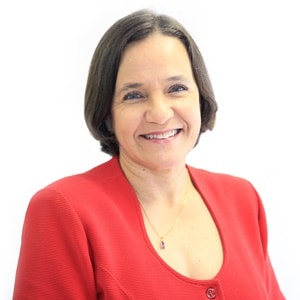
She holds a degree in Mechanical Engineering from the State University of Campinas (1982), a master’s degree in Space Engineering and Technology from the National Institute for Space Research (1985) and a PhD in Mechanical Engineering – University of Waterloo (1995). She is currently a full professor at the Federal University of Santa Catarina. Also, she is a full member of the National Academy of Engineering.
- Satellites thermal control
- Bolted joints
- Thermosiphons and heat pipes
Under construction!
E-mail: marcia.mantelli@ufsc.br
Lattes: http://lattes.cnpq.br/4827144998793708
Linkedin: https://br.linkedin.com/in/marcia-mantelli-977b02125
head researcher
Kleber Vieira de Paiva, PHD
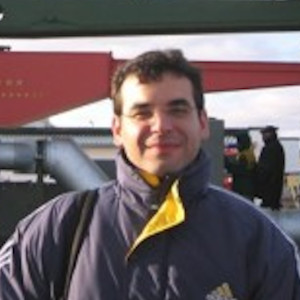
Since 2013 he is a professor of the Aerospace Engineering course at UFSC – campus Joinville. In 2012 he was a professor of technical and technological education at the Instituto Federal Catarinense. He completed his doctorate in Engineering and Thermal Sciences at UFSC in 2011 and his master’s degree in the same area and institution in 2007.
Heat transfer
Thermodynamics
Fluid mechanics
- Thermosiphons, heat pipes and mini heat tubes
Under Construction!
E-mail: kleber.paiva@ufsc.br
Lattes: http://lattes.cnpq.br/6926960596498906
Site: https://lccp.ufsc.br/professores/kleber-vieira-de-paiva/

